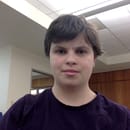I am asexual (and quite likely aromantic), I have no clear time when I found the word or when I decided it fit me. I grew into it the same way I grew into my love of reading, size eight sneakers or going to college. It was at college that a conversation really got me thinking about asexuality.
It was a normal brunch with my friend at first; we talked about classes and the food. I wondered if I should get more potatoes or not (spoiler, I did). But when the conversation changed to her psychology text, it took a turn I didn’t expect. I asked (half joking, half bitter) if asexuality was in there as a disorder- she said yes (I later found out that asexuality is not in the DSM V, or classified as a mental disorder by the scientific community). It hurt but not as much as my friend, someone whose opinion I valued much more than the nameless, faceless profile who wrote the textbook, telling me that asexualty was a disorder. She didn’t say it as if it was a bad thing, or as if she was trying to be cruel, she said it like it was a fact, an unreliable truth. The sky is up, water is wet and asexuality is a mental disorder. I disagreed and we eventually came to an impasse but it got me thinking, why is asexuality not a disorder.
Here is my answer, what I wish I could have told her doing that brunch: To be a “disorder” that implies things are out of order or wrong. By this view asexuality is a disorder because sexual attraction is the “normal” and anything the deviates from that is “wrong.” I disagree with that. While it might be true that as an asexual (ace), my brain processes things differently that a sexual person does I do not that means I have a disorder. There is a spectrum on which all people exist, on one side are the very sexual people and on the other, the asexual people. There is not a binary in which there are the right “sexual” people and the wrong, disordered “asexual” people.
One might argue that while there is a spectrum of people, those who are ace fall on the end under “disorder.” One example of this is the spectrum between occasional sadness and depression- which is seen as a mental disorder. It could be said that while some fluctuation in sexual attraction is normal having none is a problem, and thus a disorder. My response (excluding my opinions about how we live in a culture that over values sex and sexual relationships and is a whole different article) is this is that unlike depression which people seek treatment for I feel no need to “fix” my asexuality.
To me, the use of the term disorder implies something wrong within the brain, something that needs to be fixed. When I have talked to people who have mental “disorders” they are seeking treatment. I do not feel the need to seek treatment for my asexuality, maybe someday I will meet someone I want to have sex with, maybe I won’t. I really don’t care. I do not go to therapists for my asexuality, I do not take medicine in an attempt to raise my libido or force myself into sexual relationships to try and “cure” myself. People are just people, sexual or asexual.
Really, being asexual is like being good at math or liking spicy food. As I mentioned earlier there is a spectrum. Nobody calls hating spicy food a disorder or tries to force you to try all fifty something different types of hot sauce because “you haven’t found the right one” or “you haven’t tried my hot sauce yet, when you do you will like spicy food” (not happening). I am asexual. I do not feel any desire to have sex. I exist (contrary to some options). I read books and make (awesome) puns. I bake and laugh with my friends. I do not have a mental disorder. Asexuality is not a mental disorder, it is just another facet of who I am.


